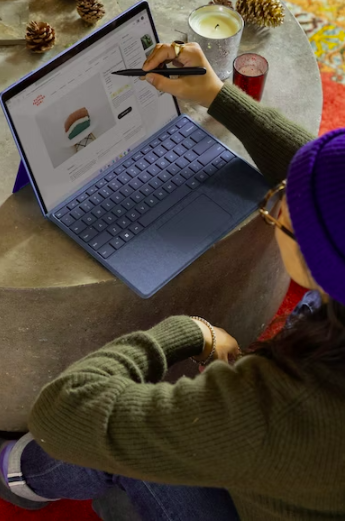Business Accountants: Harnessing the Power of Virtual Reality in Healthcare: Applications and Future Trends
In the wake of the COVID-19 pandemic and the tech revolution that followed, healthcare has witnessed a transformative shift. Telehealth emerged as a game-changer, but another groundbreaking technology, virtual reality (VR), is making its way into healthcare. As the digital landscape becomes more familiar, patients, medical professionals, regulators, and insurers are embracing VR’s potential to revolutionize the sector. This guide explores the realm of virtual reality in healthcare, from its fundamental workings to its diverse applications and the challenges it faces.
Understanding Virtual Reality in Healthcare:
Virtual reality (VR) encompasses computer-generated simulations that offer users an immersive experience within a 360-degree virtual world. By utilizing specialized headsets and controllers, VR creates a sense of depth and spatial interaction, making it an innovative tool in healthcare.
How Does VR Work?
VR headsets consist of dual screens, each projecting slightly different angles to create a 3D effect. Sensors track users’ head movements, updating the visual display accordingly. Some systems include hand controllers or haptic gloves, enhancing interaction and simulating physical sensations. These technologies are poised to reshape healthcare practices, training, and patient experiences.
VR Applications in Healthcare:
1. Pain Management: VR distracts patients from pain by immersing them in soothing environments or guiding them through relaxation techniques. It’s employed during burn treatments, surgeries, labor, and cancer therapies.
2. Physical and Occupational Therapy: VR transforms rehabilitation exercises into engaging experiences, aiding stroke recovery, injury rehabilitation, and disabilities.
3. Exposure Therapy and PTSD: Patients confront phobias and anxieties through controlled virtual environments, aiding in treatments for agoraphobia and post-traumatic stress disorder (PTSD).
4. Anxiety and Depression Treatment: VR combines immersive environments with cognitive-behavioral therapy, offering a unique approach to treating anxiety and depression.
5. Surgical Training: Surgeons use VR simulations for pre-operative practice and patient consultations. Platforms like OssoVR enhance surgeon skills and accuracy.
6. Medical Education: VR trains medical students, allowing them to practice surgical techniques, anatomy identification, and emergency scenarios.
7. Diagnostic Tools: VR assists in diagnosing vision problems remotely and enables the study of molecular structures in 3D environments.
Benefits of VR in Healthcare:
1. Immersive Experience: VR transports users to otherwise inaccessible or risky scenarios, offering new therapeutic possibilities.
2. Enhanced Engagement: Gamified treatments make rehabilitation exercises enjoyable, improving patient adherence.
3. Accessibility: Patients can receive treatment at home, overcoming geographical barriers and enhancing convenience.
4. Cost-Efficiency: VR treatments can replace medication, shorten recovery periods, and reduce specialist hours, eventually offsetting initial costs.
Challenges of Implementing VR in Healthcare:
1. Limited Familiarity: VR technology is not widely owned or understood, especially among the elderly population.
2. Logistical Challenges: Distributing headsets, setting up equipment correctly, and ensuring a safe environment for usage pose challenges.
3. Resistance to Change: The healthcare industry is cautious about adopting disruptive technologies due to regulatory, process, and workflow complexities.
4. Technological Evolution: Rapid changes in VR technology lead to compatibility issues and concerns over equipment obsolescence.
Future Outlook of VR in Healthcare:
While full replacement of in-person treatments is distant, VR’s gradual integration is inevitable. Widespread adoption of headsets in hospitals, home-based virtual treatments, and refined VR protocols hold promise for the future. As VR becomes more streamlined and accessible, its potential to reshape healthcare delivery and patient experiences will continue to grow, albeit gradually.
Your Outside Team







